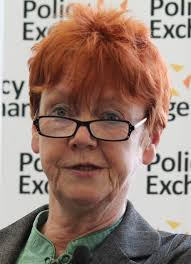Why was Ray Gilbert's Statement of Innocence rejected by the CCRC without any investigation?
- empowerinnocent
- Jan 20, 2023
- 3 min read

Ray Gilbert
Ray Gilbert is currently one of the most high profile alleged victims of wrongful conviction and imprisonment.
He has been trying to overturn his conviction for murder for almost 42 years.
Convicted in 1981 with John Kamara, who overturned his conviction in 2000, Mr Gilbert spent 36 and a half years in prison for the murder of John Suffield, a Liverpool betting shop manager who was tied to a chair and stabbed 19 times in what the police believed was a botched robbery.
Although Ray Gilbert admits to making a confession to the police in 1981 and that he changed his plea to guilty during his trial, he is adamant that he is innocent and that the real murderers are still at liberty.
Below is the hand written Statement of Innocence that Mr Gilbert sent to the CCRC in May 2001, which was accepted as his fifth application to the CCRC to have his conviction investigated.
In it, Mr Gilbert asserts his innocence for the murder in some detail and lays out a proposed plan for a possible CCRC investigation that could exonerate him and possibly identify the real murder or murderers if it is not Mr Gilbert.
Regular readers of CCRC Watch and those concerned with alleged wrongful convictions will know that the CCRC is the first publicly funded post-appeal body set up to investigate alleged wrongful convictions that are failed by the Court of Appeal where there are continuing doubts about the justness and/or reliability of the conviction.
They will also know that the CCRC routinely rejects more than 97% of applications and in some years as many as 99% of applications without a full investigations of claims of innocence or wrongful conviction by alleged victims of miscarriages of justice.
It is in this context that it was of no great surprise that the CCRC summarily rejected Mr Gilbert's 5th his application on the grounds that:
"Your new application to us has been rejected because what you say in your application has already been considered by the CCRC previously and in relation to the lie detector test, is (sic) not admissible evidence and therefore would not be received by the Court of Appeal."
Bill Robertson's recent article in CCRC Watch evaluated the 5 rejections by the CCRC to Mr Gilbert's applications (click here for the article). In the article Bill argues that when the various submissions are evaluated it becomes apparent that as far as the CCRC are concerned Mr Gilbert is considered “just not worth it”. But, he asks, why will the CCRC not investigate Ray Gilbert’s claim of innocence for the murder of John Suffield?
In this article, we ask those concerned with both alleged wrongful conviction and with murderers escaping justice to read Mr Gilbert's Statement of Innocence and ask themselves whether they think that the CCRC is fulfilling it's public mandate when it shows a total disregard for both Mr Gilbert's claim of innocence and the reality that the real murderer of Mr Suffield could be a liberty if Mr Gilbert is found to be innocent.
We also ask that readers see past Mr Gilbert's confessions for the murder of John Suffield on the basis that false confessions have featured in many of the now notorious miscarriage of justice cases, such as the Guildford Four, Birmingham Six, Cardiff Three to name just three relevant cases.
Rather, we ask readers to work instead to consider what evidence other than Mr Gilbert's alleged false confession and guilty plea connects him to the murder?
In our examination of Mr Gilbert's case, we have found no actual evidence connecting Mr Gilbert to the murder of John Suffield, but much evidence pointing towards others who may be the real murderer(s) if it is not Mr Gilbert.
It is in this context that CCRC Watch is publishing Mr Gilbert's Statement of Innocence and asks the CCRC, again: Why was Ray Gilbert's Statement of Innocence rejected by the CCRC without any investigation?
Does the CCRC not care if Mr Gilbert is innocent, nor with the reality that if he is then the real murderer is still at liberty with the potential to commit further serious crimes?
By Michael Naughton
Dr Michael Naughton is the Founder and Director of Empowering the Innocent (ETI) and a Reader in Sociology and Law at the University of Bristol. Click here for more about Michael.
Please let us know if you think that there is a mistake in this article, explaining what you think is wrong and why. We will correct any errors as soon as possible.












Comments